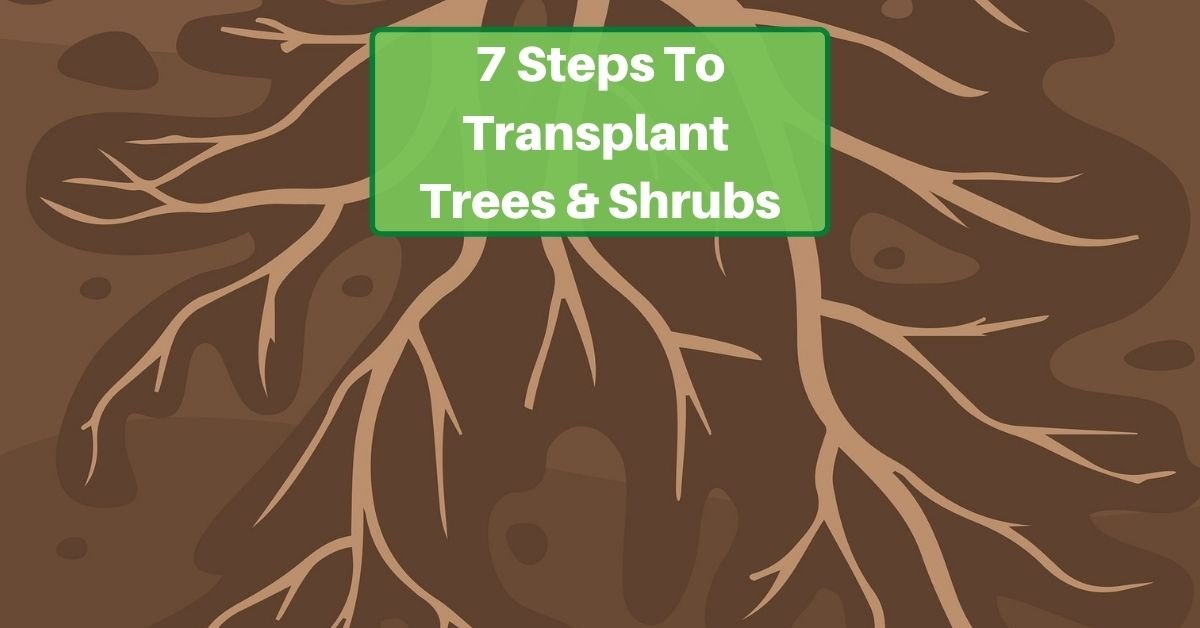Odds are that when you plant a bush or a tree, you expect it to stay there forever. But sometimes, that’s just not possible. It may become necessary to move flora to another place. It can be a tough process, but if you want to preserve a beloved plant, it’s worth it.
Looking to transplant your perennials?
Some Reasons You May Need To Transplant
Many – even most – homeowners will never have to worry about transplanting something as big as a shrub. At the same time, there are quite a few reasons you may need to.
For example, you may decide to widen your driveway or sidewalk and find that a tree or bush is too close.
You might also find that you accidentally planted too close to buried utilities or a structure like your house, a patio, or a swimming pool. If you didn’t account for root growth, you could run the risk of damage to those constructions.
Trees or bushes could grow larger than you expect and block your view. Local laws may have also changed, and you aren’t allowed plants of that size near the corner of your lot.
They could even have sentimental meaning and you want to take them with you when you move! Perhaps your grandmother planted that beautiful azalea – you don’t want to leave it behind when you buy a new home across town.
These are just a few reasons you may decide to find a new home for your tree or bush. That’s usually across your yard, but it could even be across town.
Just a note: when we talk about trees, we’re not talking about full-grown maples or oaks. Sure, you could theoretically transplant them, but it’s not practical unless the tree has some historical significance and you have government resources to do the job. However, you can transplant a smaller tree.
Which trees are best for your front yard?
Steps To Transplant A Shrub Or Tree
This is a job that will take some hard work, mostly from digging. The good part is it’s not complicated. You may end up with a sore back, but you probably won’t have a headache.
Prune
Before anything else, you’ll want to prune back your bush or tree substantially. This allows it to preserve its energy to adjust to its future home. We recommend pruning back about a third of its growth.
Dig It Out
Uprooting your tree or bush is going to take some guesswork and experimenting. You want to do as little damage to the root system as possible. You may still cut some minor roots, but don’t cut them too close.
If you start finding significant roots, dig wider. Make sure you dig deep enough, as well. A tree’s taproot can go quite deep!
Check out these great bush and shrub suggestions!
Preserve Soil
Once you’ve dug up your plant, you can carefully move it to its new home. Do not remove the soil trapped within its root! Keeping it will reduce the stress the bush suffers.
Dig A New Home
You can do this step earlier in the process. It’s time to prepare a new spot for your plant!
This hole should be twice as big as the root system so that the plant will find it easy to adjust and expand.
Fertilize
Before you place the plant into its new hole, you’ll want to add compost and peat moss. These will help provide needed nutrients for the plant as it adjusts to its new location.
Place It
You can now place your shrub or tree into its hole. Be sure to position it the way you like, making sure its “best side” aims the way you want.
Keeping the plant upright, fill the hole with compost and soil. It’s always a good idea to add water as you fill the hole, too.
Water
Water the plant thoroughly when you finish filling the hole. Be sure to keep it well-watered for the next few weeks, too, so that the roots take hold and have enough strength to spread nutrients throughout the organism.
Conclusion
Moving a tree or bush to a new home takes a good bit of work, but it sure beats losing the plant entirely. Focus on keeping roots intact and providing plenty of water and fertilizer. With a bit of TLC, your plant will soon be thriving in its new position!









